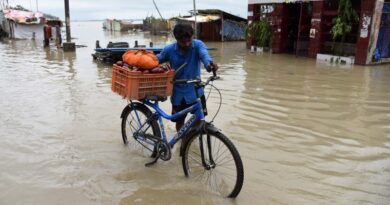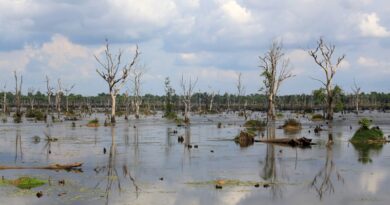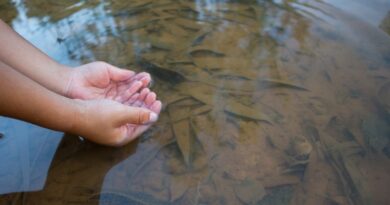UN report calls for sustainable freshwater transition, guaranteeing flows to conserve, restore biodiversity

The United Nations Convention on Biological Diversity (CBD) has launched a new “report card” that proposes eight transformative changes, including sustainable freshwater transition, that are urgently needed to ensure human wellbeing and save the planet.
Noting that despite encouraging progress in several areas, the natural world is suffering badly and getting worse, the report calls for a shift away from “business as usual” across a range of human activities.
The Global Biodiversity Outlook (5) is an authoritative overview of the state of nature, marking progress made against 20 global biodiversity targets that were agreed in 2010. It also offers lessons learned and best practices for getting on track to achieve the goals.
Five of the targets have been partially achieved and the others are failures.
The Global Biodiversity Outlook (5) points out that in order to achieve the 2050 Vision for Biodiversity a range of actions are necessary, and that action on any one point alone is insufficient to have meaningful impact.
The report comes as the COVID-19 pandemic challenges people to rethink their relationship with nature, and to consider the profound consequences to their own wellbeing and survival that can result from continued biodiversity loss and the degradation of ecosystems.
“This flagship report underlines that ‘humanity stands at a crossroads with regard to the legacy we wish to leave to future generations,’” said CBD Executive Secretary, Elizabeth Maruma Mrema.
“As nature degrades, new opportunities emerge for the spread to humans and animals of devastating diseases like this year’s coronavirus. The window of time available is short, but the pandemic has also demonstrated that transformative changes are possible when they must be made”, said Mrema.
The report outlines critical transitions that are needed to restore ecosystems crucial to support human existence. It has identified eight transformations that recognise the value of biodiversity, the need to restore ecosystems and the urgency of reducing the negative impacts of human activity.
On freshwater, the report proposes an integrated approach guaranteeing the water flows required by nature and people, improving water quality, protecting critical habitats, controlling invasive species and safeguarding connectivity to allow the recovery of freshwater systems from mountains to coasts.
Transformations are also called for in the production of food and the consumption of resources such as freshwater, energy and forests. Efforts to conserve and restore biodiversity need to be expanded, with better coordination between local and regional efforts.
“An integrated approach must be applied to guarantee the water flows required by nature and people, to improve water quality, and to protect critical habitats. Effective steps need to be taken to restore degraded habitats through controlling water pollution, reducing alien invasive species and containing uncontrolled and unsustainable exploitation of marine and inland water ecosystems”, it notes.
The areas of action outlined in the report rely on substantive changes and innovations and must be implemented on a very quick timescale and must include a variety of actors across a full range sectors.
The report warns, however, that intensive efforts must extend across all issues of biodiversity loss. For example, the most ambitious measures to conserve and restore ecosystems will fail to address biodiversity loss and food security unless equally ambitious steps are taken to sustainably increase agricultural productivity and adopt more sustainable diets.
The authors indicate that governments will need to scale up national ambitions in support of the new Global Biodiversity Framework and ensure that all necessary resources are mobilized and the enabling environment strengthened. It emphasizes that countries need to bring biodiversity into the mainstream of decision making and factored into policies across all economic sectors.
“As we emerge from the immediate impacts of the pandemic, we have an unprecedented opportunity to ‘build back better’, incorporating the transitions outlined in this Outlook and embodied in an ambitious plan to put the world on track to achieve the 2050 Vision for Biodiversity. Part of this new agenda must be to tackle the twin global challenges of climate change and biodiversity loss in a more coordinated manner, understanding both that climate change threatens to undermine all other efforts to conserve biodiversity; and that nature itself offers some of the most effective solutions to avoid the worst impacts of a warming planet”, said United Nations Secretary-General António Guterres.



